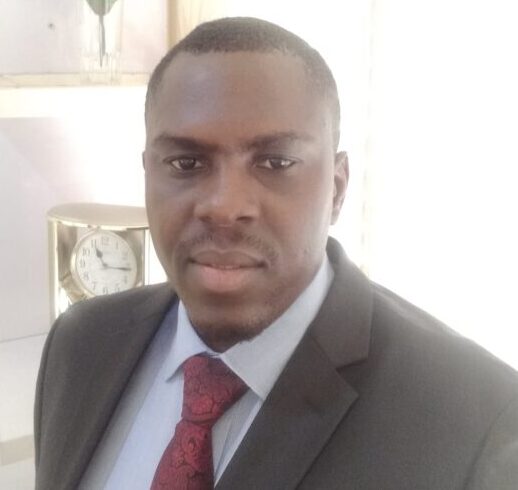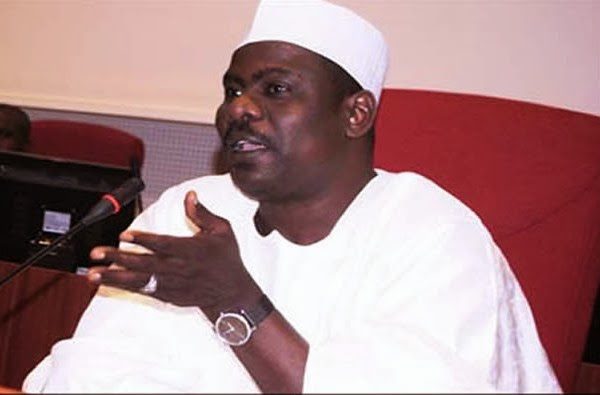Democracy & Governance
Why The 2023 Presidential Election Won’t Be Like Any Other Election -By Timipere Felix Allison
With the BVAS, there is every likelihood that votes will count this time. Consequently, political parties and candidates unable to conform to the new practice may learn the hard way that when the system is sanitised, electoral victory can be the hardest thing to achieve even for veterans of politics.

The 2023 presidential race has entered that crucial phase when the candidates make formal pitches to the electorate and influential blocs. Although the pre-campaign period witnessed ‘testing-the-mic’ online and offline popularity posturing, much of that was driven by support groups, some of them loose and self-funded. Since INEC, Nigeria’s election management body signaled the start of party-led public campaigns in late September, the leading candidates have launched their opening salvos, offering supporters and analysts early glimpses of their readiness to gain and remain in pole position in the marathon to the presidency.
It is potentially a three-horse race. The ATIKU-lates, BATists, and OBI-dients (mentioned only in alphabetical order) as supporters of PDP’s Atiku Abubakar, APC’s Bola Ahmed Tinubu, and LP’s Peter Obi respectively self-identify, seem more likely to muster the votes to push their candidate ahead of the pack. However, some are inclined to call it a four-horse race with the KWANKWA-sias – supporters of the NNPP candidate Rabiu Kwankwaso – considered to be in it to win it.
For the first time in the post-1999 democratic period, the electorate is presented with more than two heavyweight political parties or presidential candidates. This could not have been predicted a decade ago. Though Nigeria’s Constitution guarantees multipartyism which at some point saw the registration of more than 80 political parties, the PDP would maintain hegemony from 1999 to 2014. Candidates nominated on the party’s platform went to bed assured that the major and perhaps only huddle to ascending public office had been surmounted. The PDP’s tight grip on power for 16 years was due principally to the subjection of the political process, the coercive powers of the state and INEC to its control and manipulation. As a result, opposition political parties stood no chance at elections.
However, the breakdown of elite solidarity in the PDP and eventual elite reconstitution and political mergers birthed the APC as a formidable opposition party to challenge the PDP for dominance. Nigerians would go into the 2015 General Elections with two evenly-matched political parties presenting well-resourced candidates at all levels, including the presidential election. In an unprecedented feat, the APC coasted to political dominance, putting the PDP in the back seat and signalling a two-dominant party order.
Eight years since the APC rose to prominence, Nigerians will be heading to the 2023 General Elections with further widened options that include the APC, LP, NNPP and PDP, particularly in the Presidential Election. But whether it is a three- or four-horse race, the 2023 Presidential Election will be nothing like Nigeria has seen before. The outcome of this election will be shaped by the confluence of three important factors.
The first factor is that the presidential election comes at a time many Nigerians have reached the limits of their endurance. According to data from the World Poverty Clock, at least 33% of the population or over 70 million Nigerians now live in abject poverty. Unemployment is at an all-time high as are price inflation, food insecurity, and general insecurity. The quality of education and healthcare has steeply declined due to poor public investment in social services. There is little disagreement among analysts that no other period in Nigeria’s history have socioeconomic conditions and the security situation been as terrible. This has created popular despair and anger far worse than that which led many voters to embrace the APC in 2015. If the indicators tell anything, It is that a huge segment of the electorate, particularly young voters, will be taking this anger with them to the presidential election.
For these disenchanted voters, there is an awareness that the pains they suffer are a culmination of anti-people governance served them since 1999. Even though governments at all levels share in the blame for the deterioration, there is voter fixation on the presidency every election cycle. This fixation stems from a belief that the ailment debilitating the country resides in the head where it affects the entire body politic. In other words, the perception is that the buck starts and ends with the president. It is for this reason that the 2023 Presidential Election continues to generate voter interest on a scale never experienced since 1999.
The second factor is that the 2023 Presidential Election will hold under a new and constraining legal framework. By its letters and provisions, the 2022 Electoral Act corrects many of the shortcomings of and loopholes in the now-repealed 2010 Electoral Act. The 2022 Electoral Act grants INEC financial autonomy and the power to review election results announced by the returning officer where there is doubt over adherence to the rules. The new Act also mandates INEC to preserve the Voters Register in electronic format at the Commission’s Headquarters and other locations. The former Act only required the keeping of the Register in paper format, making it prone to manipulation. These new measures are to ensure the integrity of the electoral process and the credibility of outcomes.
Unlike the repealed Act, the 2022 Electoral Act grants INEC the legal backing to deploy electronic devices for voter accreditation and transmission of results to a central, secure and publicly accessible server. This solves the lack of legal backing the Supreme Court cited in affirming the contradiction with the law, of the Card Reader Machine and the inadmissibility of the Card Reader report over the Voter Register in the determination of compliance with the voting procedure as ruled in Edward Nkwegu Okereke (Appellant) and Nweze David Umahi and others (Respondents) in 2015.
The third factor is that, enabled by the 2022 Electoral Act, INEC will deploy the Bimodal Voter Accreditation System simply called BVAS, in the conduct of the 2023 elections, a commitment the INEC Chairman Mahmood Yakubu made this month. Despite its teething challenges, the trialing of the BVAS in the Isoko South by-election in Delta State and the Anambra governorship election in 2021, and the Abuja Municipal Councils, Ekiti and Osun governorship elections in 2022 demonstrated the efficacy of the technology in preventing widespread voter fraud and manipulation of the voting process. It will not be wrong to say that the BVAS and electronic transmission of results constitute a nightmare for political elites not accustomed to securing electoral victory legitimately.
Therefore, as the presidential candidates and their parties approach the election, their chances of success will be tested by these factors. Given the extent of public despair and anger, a party or candidate’s perceived connection to the governance system that breeds poverty and pain may greatly undermine their acceptability to the majority of the electorate. Also, the failure to recognise that with the new Electoral Act the old and corrupt ways of winning elections are no longer applicable may lead to resounding electoral embarrassment from which there may not be a recovery.
Furthermore, with citizens and civil society becoming more vigilant, and INEC now under immense pressure and expectation to deliver a more credible election following the successes of Anambra, Ekiti and Osun, the use of the BVAS and electronic transmission of results will be a difficult one to set aside. With the BVAS, there is every likelihood that votes will count this time. Consequently, political parties and candidates unable to conform to the new practice may learn the hard way that when the system is sanitised, electoral victory can be the hardest thing to achieve even for veterans of politics.
Dr. Timipere Felix Allison is the Programme Coordinator at Conflict Research Network West Africa, Abuja.




















